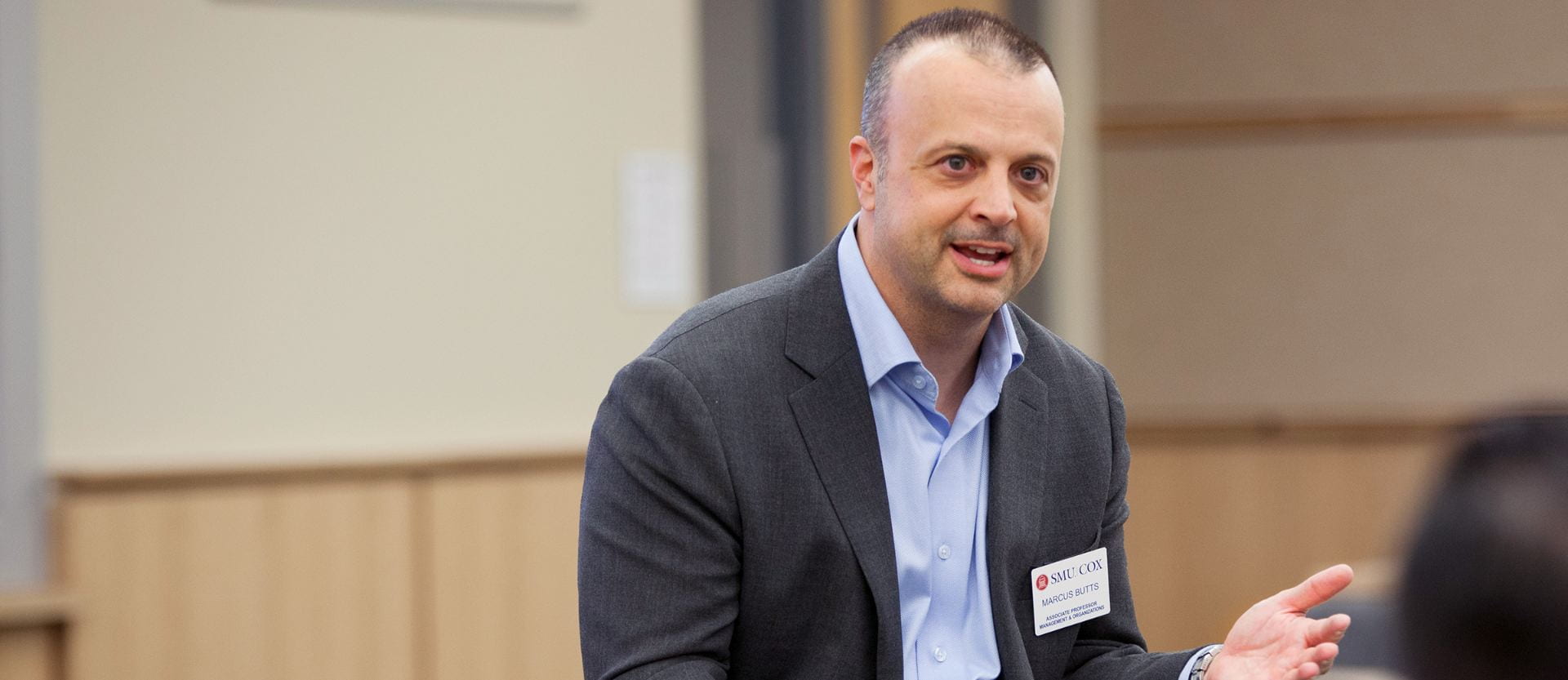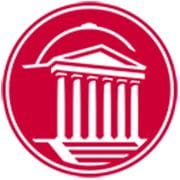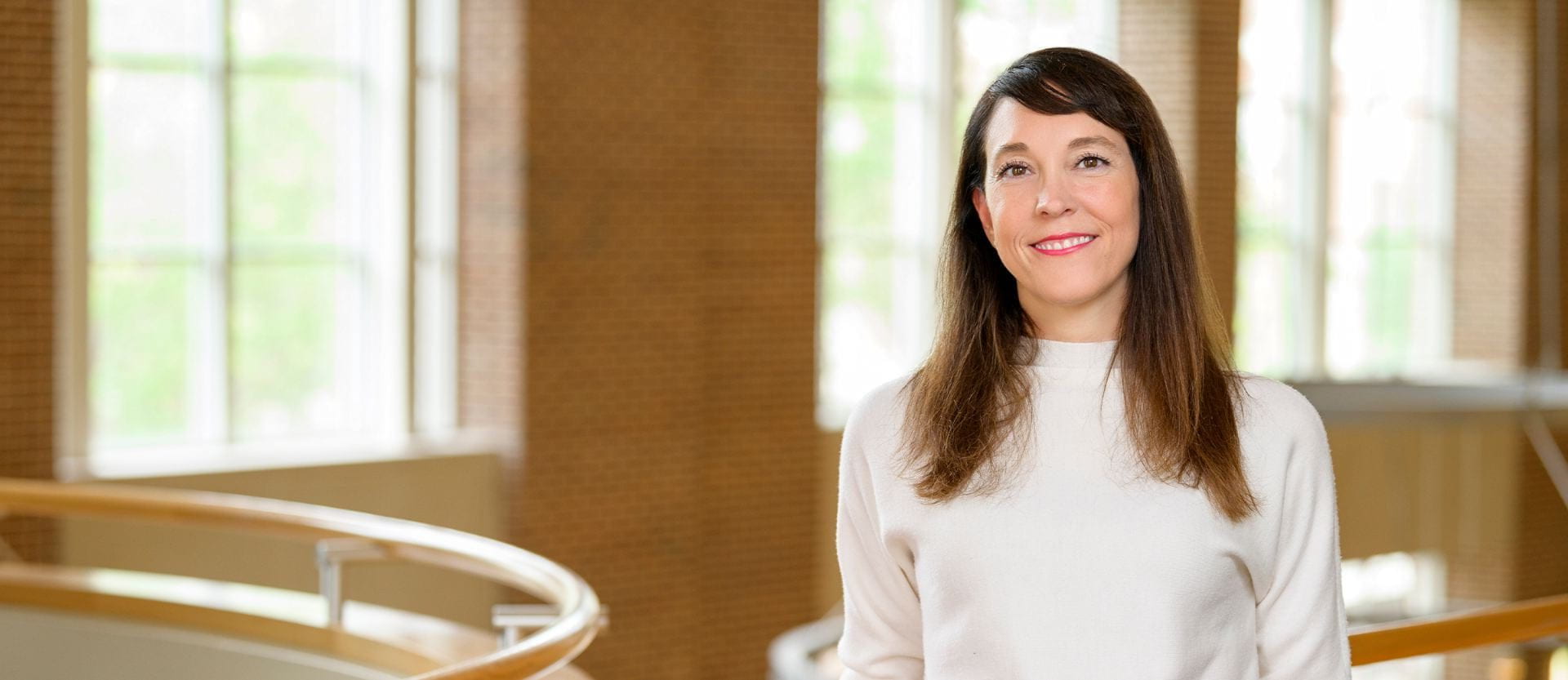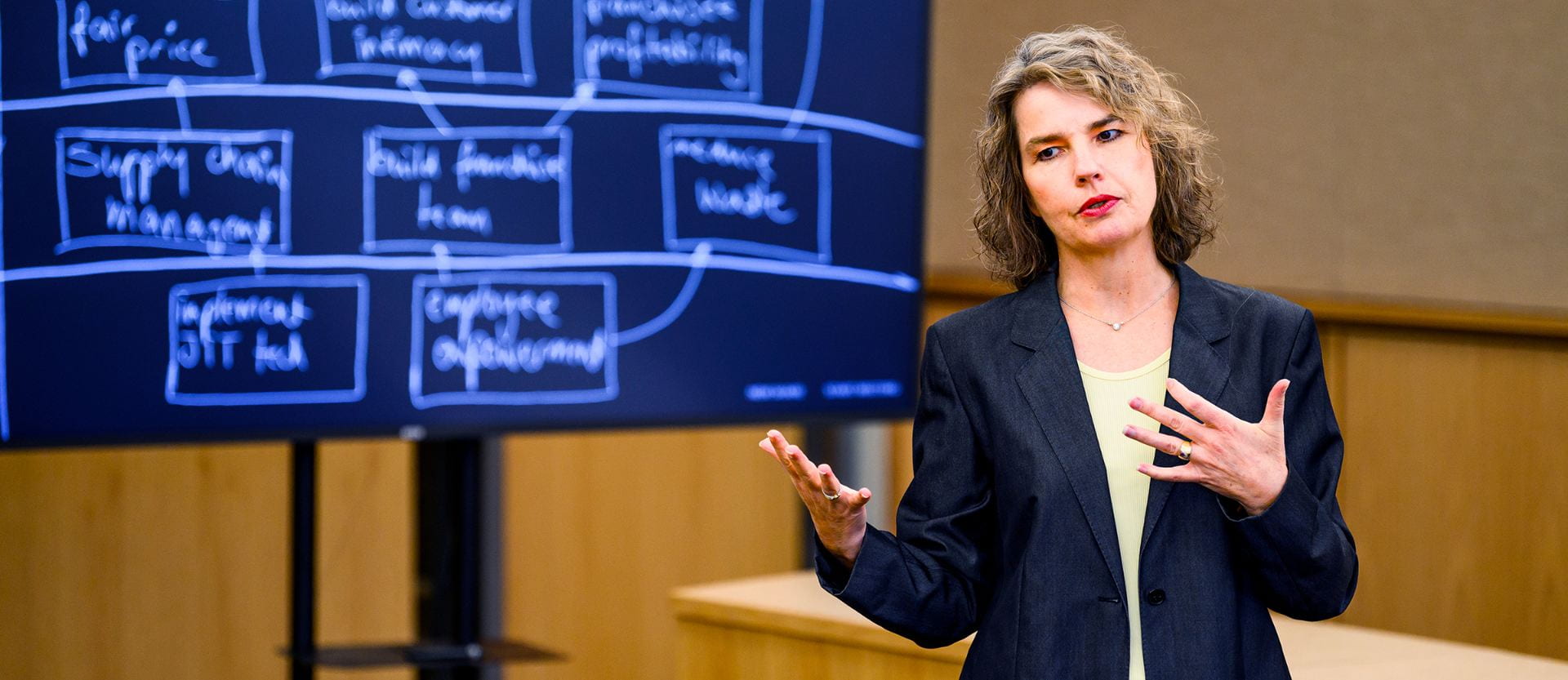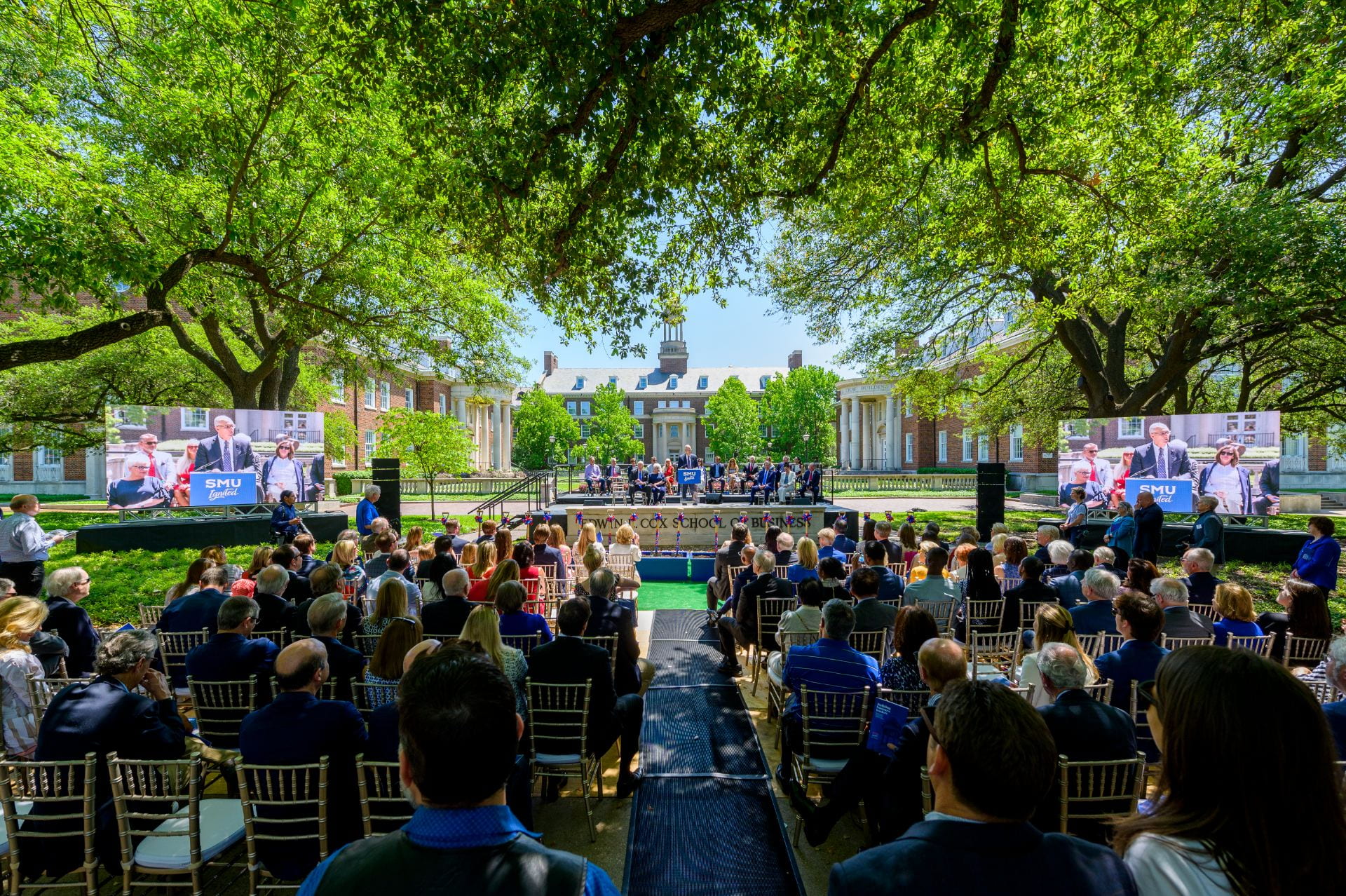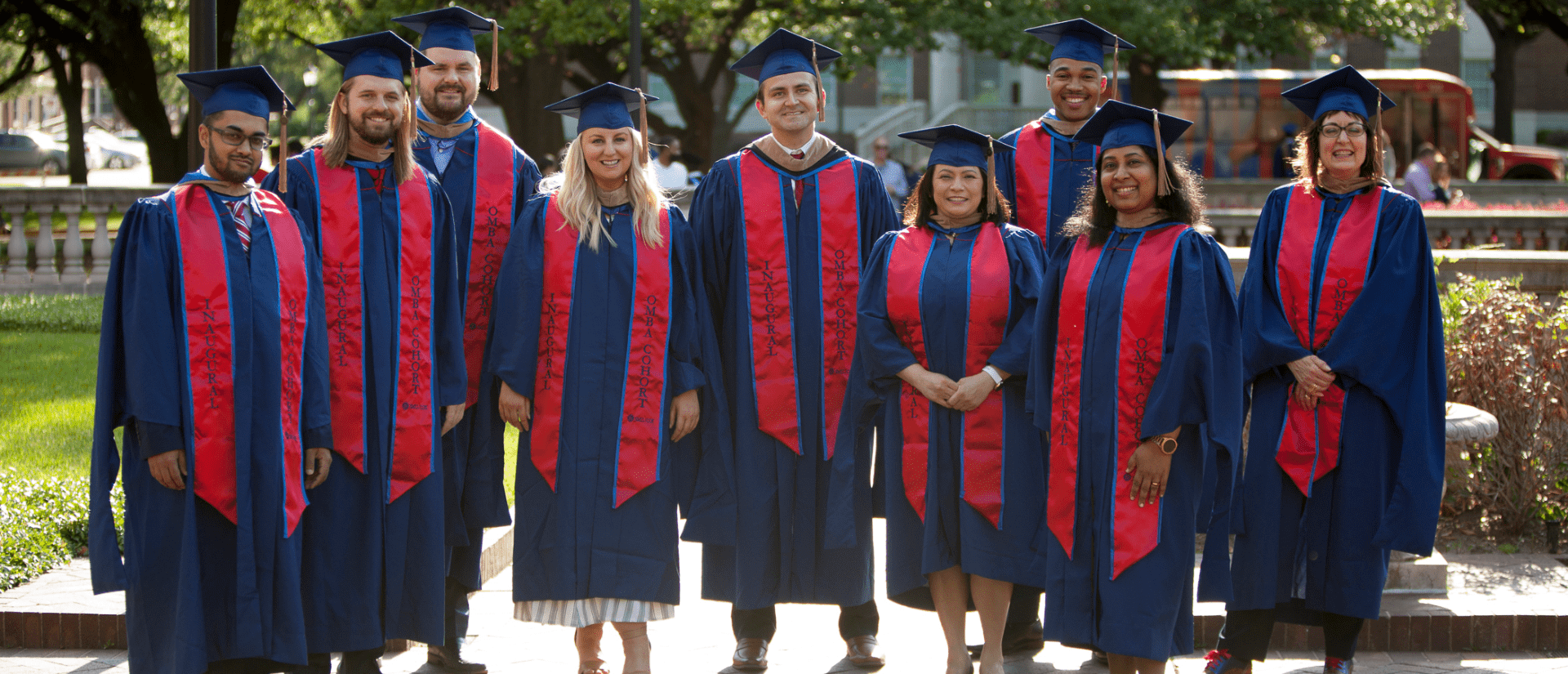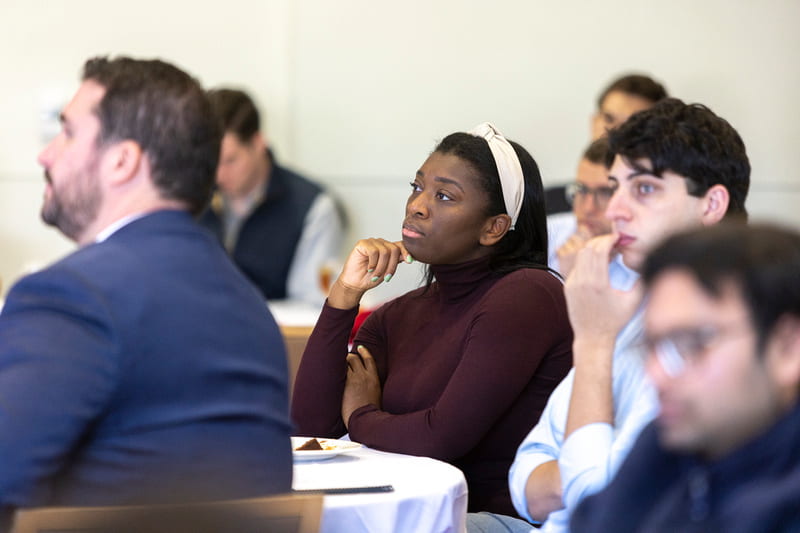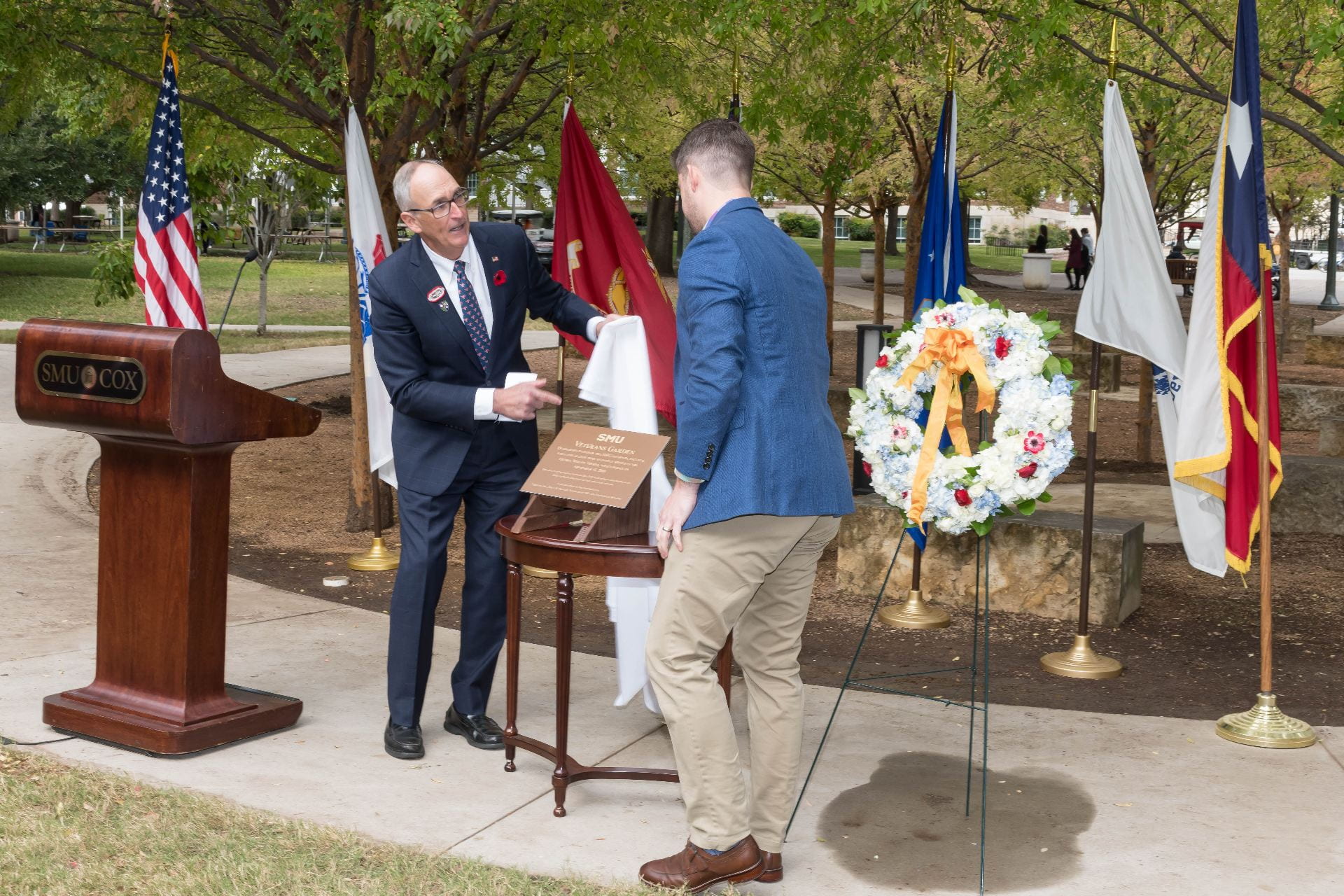When it comes to business school professors, Marcus Butts is unique. The SMU Cox chair of the Management and Organizations Department has three degrees in psychology. “There aren’t a whole lot of psychologists in business school,” he says.
Butts brings a unique perspective to the classroom, blending his academic and research interests in leadership dynamics and work-life issues with his experience in the business world.
Between his bachelor’s degree at Texas A&M and master’s and doctorate degrees at the University of Georgia, Butts worked in human resources, consulting with companies about telework, paid leave and on-campus childcare centers. When he went to grad school to study organizational psychology, he maintained his interests in employer-employee relations and work-life balance, even as he shifted from a consultant’s role helping companies to an academic’s role of studying and researching the work-life intersection, which he continues to do.
Using Workplace Experience as Data
Now, Butts pursues his interests in both the classroom and his research. An associate professor of management and organizations and a Marilyn and Leo Corrigan Endowed Research Professor at Cox, he’s currently conducting studies on social media usage during the workday and on gossip in the workplace.
In his research, Butts has found that workday social media usage can unite employees with their colleagues, but it can also offer a break from work. On the one hand, it fosters engagement; on the other, it offers escape. Workplace gossip functions much the same to unite coworkers — but it also causes guilt in the gossiper, who spends the rest of the day doing extra work to repair their relationship with their boss.
To conduct many of his studies, Butts uses a unique lens called experience sampling. “Often throughout our day we have moments, and those moments are experiences,” Butts says. “I try to tap into those experiences on Monday, Tuesday, Wednesday, Thursday, Friday, so on and so forth. Then I look at how those experiences differ across those days within a person.”
For example, a few years ago, Butts studied after-work electronic communications. He wanted to understand how employees handle emails from the workplace when the workday is over. Tracking 150 people across 10 days, he calculated deviations from the mean for each person’s response to after-work communications.
“Let’s say on Mondays, when the email was really anger-oriented, I then, in response, get agitated,” Butts says. “Well then on Tuesday, when it’s less anger-oriented, my emotions are happier. So we can track those across days. We’re looking at deviations above and below the average score across those days — or within person dynamic changes.”
Butts and his colleagues then aggregated the data to look at not only the individuals, but also different demographics, including industry and gender. They found that the more negative an after-work electronic communication and the more involved its demands, the more negatively people reacted. They also found that segmentors — people who view work and life as separate spheres — react more negatively than integrators, who view their work and life as one sphere. Although the common wisdom is to separate life at work from life after work, Butts’ study shows that it might pay off to view your life as a single, whole entity.
Helping Organizations Benefit Employees
When he’s not conducting workplace communication research, Butts teaches classes on team leadership in organizations and on people analytics. In the latter, he teaches much of what he learned working in HR. In the former, he covers everything from inter-team dynamics to organizational leadership, drawing on his research of work-life balance as well as on topics such as destructive leadership practices. His goal is to capture how companies can function best and implement best practices.
“We find that it’s that type of common-sense or logical insights that are more likely to be applied in organizations,” Butts says regarding his research and its results. “So instead of having really convoluted, complex, ivory tower, academic kinds of questions — that would never be acted upon in an organization — it’s these little moments that impact the employee’s life.
If you can show that to a team of executives, I have found that the company is more likely to try to create new practices or new management styles that then mimic those results to benefit the employees.”

